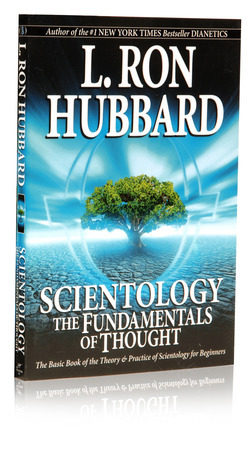
Dianetics: The Modern Science of Mental Health
Book Description
Unlock the secrets of the mind and transform your life with groundbreaking revelations that challenge everything you thought you knew about mental health. "Dianetics: The Modern Science of Mental Health" uncovers the hidden forces that shape human behavior and reveals powerful techniques to erase mental barriers. As trauma and pain fade away, clarity and purpose emerge, captivating readers with the promise of a better tomorrow. Explore the intricacies of the human experience and discover the tools that can lead to ultimate freedom. Are you ready to take control of your mind and unleash your true potential?
Quick Book Summary
"Dianetics: The Modern Science of Mental Health" by L. Ron Hubbard introduces a comprehensive theory of the human mind, proposing that most psychological and physical issues are rooted in unresolved traumatic experiences known as "engrams." The book outlines a self-help system intended to help individuals identify and erase these engrams through a method called auditing. Hubbard suggests that by clearing the mind of these negative influences, people can achieve a state of clarity, happiness, and greater control over their lives. The book blends aspects of psychology, philosophy, and self-improvement, offering readers actionable techniques alongside an ambitious framework for understanding the human psyche. Although controversial, "Dianetics" has influenced both lay readers and alternative therapeutic movements seeking novel approaches to mental health.
Summary of Key Ideas
Table of Contents
Understanding the Analytical and Reactive Mind
Dianetics begins with L. Ron Hubbard’s assertion that human behavior is determined by two main parts of the mind: the analytical mind and the reactive mind. The analytical mind operates logically, solving problems and making rational decisions. In contrast, the reactive mind records all pain, trauma, and unconscious experience as "engrams," which automatically influence thoughts and actions, often to the detriment of the individual. The distinction between these two minds provides the foundational lens through which Hubbard explores mental health and personal transformation.
The Nature and Impact of Engrams (Traumatic Memories)
A central concept in Dianetics is the engram. Hubbard describes engrams as harmful mental recordings created during moments of physical or emotional pain and unconsciousness. These engrams can be triggered later in life, causing unwanted emotional responses or psychosomatic illnesses. The book argues that most human suffering can be traced to these buried traumas, which actively interfere with logical thought and lead to irrational behavior. Recognizing engrams as the true root of many problems, Hubbard redefines mental well-being as a process of uncovering and erasing such negative imprints.
Clear: Achieving Freedom From the Reactive Mind
To address engrams, Dianetics introduces the process of auditing—a guided dialogue between an auditor and a subject. Through specific questioning, the auditor helps the individual re-experience and confront painful memories in a controlled manner. By bringing these unconscious experiences into conscious awareness, the book claims, the person can discharge their emotional power. This process, described in technical detail, is presented as safe and systematic, allowing anyone to potentially clear traumatic barriers with proper guidance and persistence.
The Process and Technology of Auditing
The ultimate goal outlined in Dianetics is the state of Clear. According to Hubbard, a Clear is someone who has eliminated all the engrams from their reactive mind, thus achieving freedom from the unconscious influences that once dictated behavior. Clears are said to experience greater rationality, happiness, physical health, and self-control. The book presents this as a revolutionary outcome, arguing that clearing the mind leads not only to individual liberation but also to a transformation in societal well-being.
The Promise of Human Potential and Empowerment
Hubbard concludes with a vision of human potential and empowerment, encouraging readers to take responsibility for their mental health. He frames Dianetics as both a science and an applied technology to unlock innate abilities, overcome emotional limitations, and create purposeful, fulfilling lives. While the methods and claims of Dianetics have sparked controversy and skepticism, its focus on self-improvement, personal agency, and the promise of mental clarity continue to attract readers seeking alternative paths to personal growth and healing.
Download This Summary
Get a free PDF of this summary instantly — no email required.





